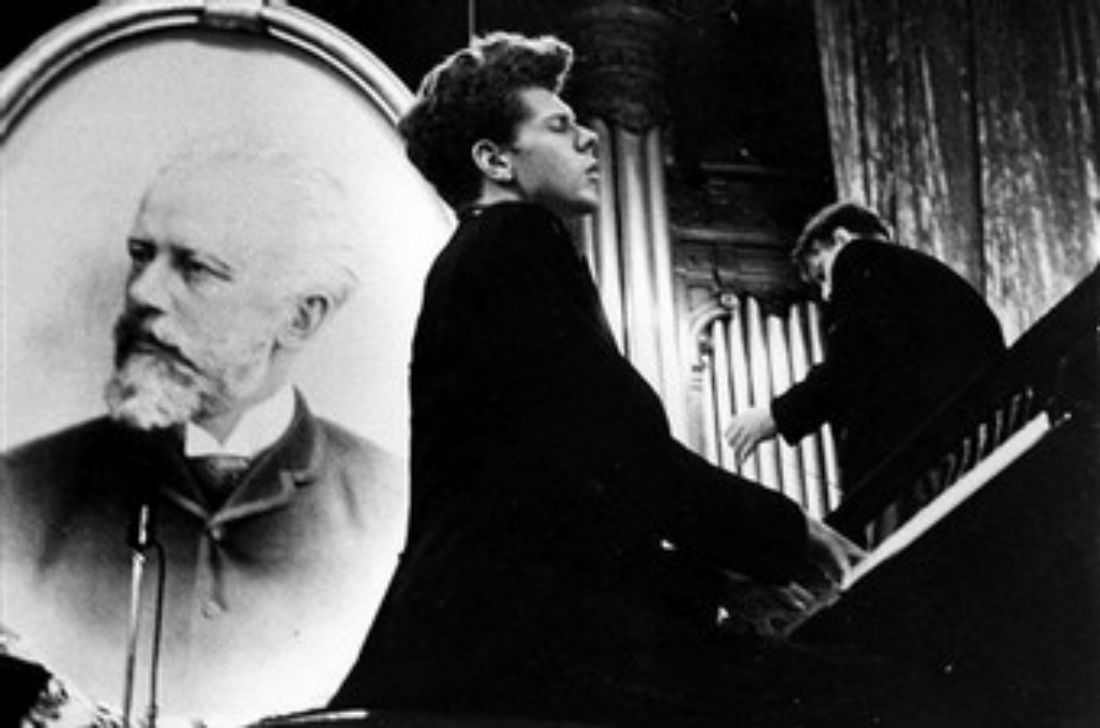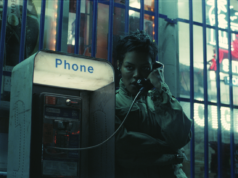The world is now resounding with the sad news out of Fort Worth. This morning, the Van Cliburn Foundation announced the death of the concert pianist, goodwill ambassador, and son of Texas who installed the world’s premier piano competition in our city. Van Cliburn passed away peacefully in his sleep last night. He was 78 years old. The news of his passing was inevitable, and it was hardly unexpected given his bone cancer diagnosis last year. Still, the hard fact remains that next summer’s Van Cliburn International Piano Competition will now, for the first time, have to go on without the man who gave his name to it.
What’s left to say at this point that hasn’t already been written? The story of his performance at the 1958 Tchaikovsky Competition passed into classical music folklore almost immediately. His stardom and his time as a pop culture phenomenon wasn’t simply because that he gave great, idiomatic performances of Russian piano music that outstripped those of his Soviet competitors. It was because of the idea that music could bridge the differences between the world’s two pre-eminent superpowers, who had been allies not so long before. At a time when many Americans and Soviets lived with the nightmarish prospect of a nuclear war wiping out both countries and millions of people, Van Cliburn was a symbol of hope that we all could find common ground. Decades later, when the Cold War ended, it was only fitting that Van Cliburn came out of retirement to play at the White House for President Ronald Reagan and Soviet President Mikhail Gorbachev, a performance that left many present in tears. The same spirit of cathartic joy and relief greeted him during his triumphant return to Russia in 2011.
As a musician, Van Cliburn burned out from overexposure and could not match the 20th century’s great pianists in terms of sheer output. Even Glenn Gould, a contemporary of Cliburn’s who preceded him in death by more than 30 years, was more productive over the course of his career. (Gould respected Cliburn greatly, by the way.) Yet at his best, Cliburn was the equal of any pianist. Hear his performance of Chopin’s Third Scherzo, in which he brings a regal majesty to the piece without sacrificing its thrills, or his electrifying take on Edward MacDowell’s Second Piano Concerto. Though he was most at home with 19th-century repertoire, he also made an excellent record of Samuel Barber’s Piano Sonata, which is frustratingly unavailable online at this posting.
Of course, the piano competition that Cliburn founded is an accomplishment that no other pianist has matched, and not for lack of trying, either. The foundation’s series of concerts and the International Piano Competition for Outstanding Amateurs are noteworthy achievements as well, enriching the cultural life of Fort Worth. This summer’s event, the 14th Van Cliburn International Piano Competition, will be dedicated to the memory of Van Cliburn. In the meantime, I’ll just leave you with this iconic performance, on this blog now and in our hearts forever.













Quite an odd irony that the FWW cover this week is about gays in the Fort, and Van Cliburn dies at it hits the news boxes. I read the USA Today story on Cliburn’s death, and it mentioned that he was “a devote Baptist, but also quietly gay.” The very long S-T story by Tim Madigan had no room for such a mention of Van’s gayness (neither does Kristin Lin here), and it got me wondering about this. Cliburn got sued in the 1990s by a male lover in a palimimony suit, and he never denied he way gay. But FW could never accept that about him. Cliburn probably learned early on that he could make tons of money off his 1958 piano win in Russia for the rest of his life, but only if he did what his hometown wanted, which was to never bring up that “personal problem” of his, and certainly not use his fame to maybe take on gay rights issues. I’m not saying that him being gay was a leading trait in his piano playing and who he was, but it was a part of his life. People might think mentioning him being gay is not to be included on any stories about his life, perhaps because he didn’t want it that way. But news media like the S-T have to tell us who he was and what he did, and his being gay in FW had a hand in what he was. But the S-T and FW still operate as though they were in the 1950s in many ways, so the reaction by the S-T doesn’t surprise me.
Cliburn is an example of the unexpected and phenomenal origins of artistic genius. To think that a boy born in Shreveport, Louisiana in the middle of the Depression to middle class parents (his mother was-albeit- an insightful and talented pianist and his only teacher until his late teens when he enrolled in Julliard), is, in itself astounding. His winning the Levintritt award in 1954 (the jury was composed of Szell and Bernstein among other legendary figures) was in itself amazing -since no first place had been awarded over the previous five year interval. There is every indication that Cliburn did things “his way” and has certainly made a timeless impression on the 20th and 21st Century classical music world.
Cliburn could have made any city his home but chose to reside in Ft. Worth enhancing the academic and public performing arts to a degree otherwise unimaginable in North Texas.His personal life-as with most phenomenal people who selflessly enhance our culture- is of little importance compared to his life and work as a composite,which is why the comments above are so poorly conceived and delivered. Most people in Ft. Worth were aware that Cliburn was gay. I reject the flimsy premise that there is ANY evidence that “Ft. Worth could never accept that about him”. Where is there any indication except in the above authors’ vacuous imagination that Cliburn exploited his” 1958 piano win” for cash by doing only”what his hometown wanted”? That is pretty sad rambling foolishness by a perpetually angry and incomprehensible individual.
The question raised is not whether Van Cliburn was an artistic genius and how his unique story captured the world at one time. The question raised is that USA Today, The New York Times and the Wall Street Journal all mentioned he was gay when summing up his life in their obits. The Star-Telegram chose not to. In my “perpetually angry and incomprehensible” mind, perhaps this omission is evidence that Fort Worth was never comfortable with that part of his life, and it still is not, even though all sorts of gay rights issues are being debated in this country right now and being gay certainly doesn’t have the stigma it once did in most parts of the country. How else would you explain the S-T not mentioning he was gay?
@ Pinhead :Since I do not routinely read the FWST, I believe that your asking me about an abstract interpretation of their Van Cliburn obituary would be pointless. Why don’t you ask the author of the obituary at the Star Telegram ?
I guess I was raising the question about the S-T obit in light that you said I was a “perpetually angry and incomprehensible individual” for raising the question. So being that I am a “perpetually angry and incomprehensible individual,” I still raise the question: USA Today, NY Times and WSJ all reported he was gay in their obits, while the S-T did not. Anything to that? (and you don’t need to “routinely” read the FWST to have an opinion).
@ Pinhead: You are changing the subject again. My point is that NOBODY cares if Tchaikovsky, Shakespeare, Walt Whitman or Thornton Wilder, -among countless others -according to their biographers- were gay. That doesn’t even compute when we read or listen to their work. They are considered great composers or authors based upon the universality of their appeal and quality work. Your statement about Cliburn’s cashing in on his “1958 piano win” -“making tons of money-doing”only what his hometown wanted” is completely silly. Cliburn won a whopping $2000 from the 1958 Russian competition (and was only allowed to take $1000 out of the Soviet Union). He lived in New York for many years before moving to Ft. Worth. Cliburn was devoted to his discipline from age 3 to age 78. Judging from the unprecedented amount of attention by the world wide press on his passing, he is considered a formidable figure in the classical music world–although he came of age in a time of other immensely talented pianists.
So I guess the conclusion here is that the S-T didn’t say he was gay because NOBODY cared about that at all, in any way positively or negatively or image-wise or their perception about what a famed person from Fort Worth should be. We’ll leave it at that.
As you, yourself, pointed out the issue was pretty much exhaustively exposed by other media. How silly! There are many talented and well accepted, celebrated, gay people in the Ft. Worth and Dallas art scene. At this point, it’s more than a little silly to even bring it up –kind of like a very incidental factoid. My question is why does a comparatively (much)lesser talent like Clarkson get so much attention in (this publication) FWW-compared to a world recognized class act like Cliburn-whose obituary is relagated to the back pages. That’s the disconcerting problem to me.
For the record, I didn’t mention his sexuality in this write-up because I didn’t know what to say about it. This facet of his life was pretty much an open secret, but since no one involved ever said anything publicly, there wasn’t really anything for me to analyze. I wish the man had said something. Some people would probably have found it useful. But he didn’t.
Oh, and I included him in this blog post that I wrote a couple of years back:
https://www.fwweekly.com/2011/02/11/a-tribute-to-gay-classical-musicians/
@ KL, Your tribute to Cliburn was wonderful, covering the multiple facets of his career as well as his “role” as a perpetually classy, good humored, cultural icon. He was literally “one of a kind” and he will be missed around these parts!